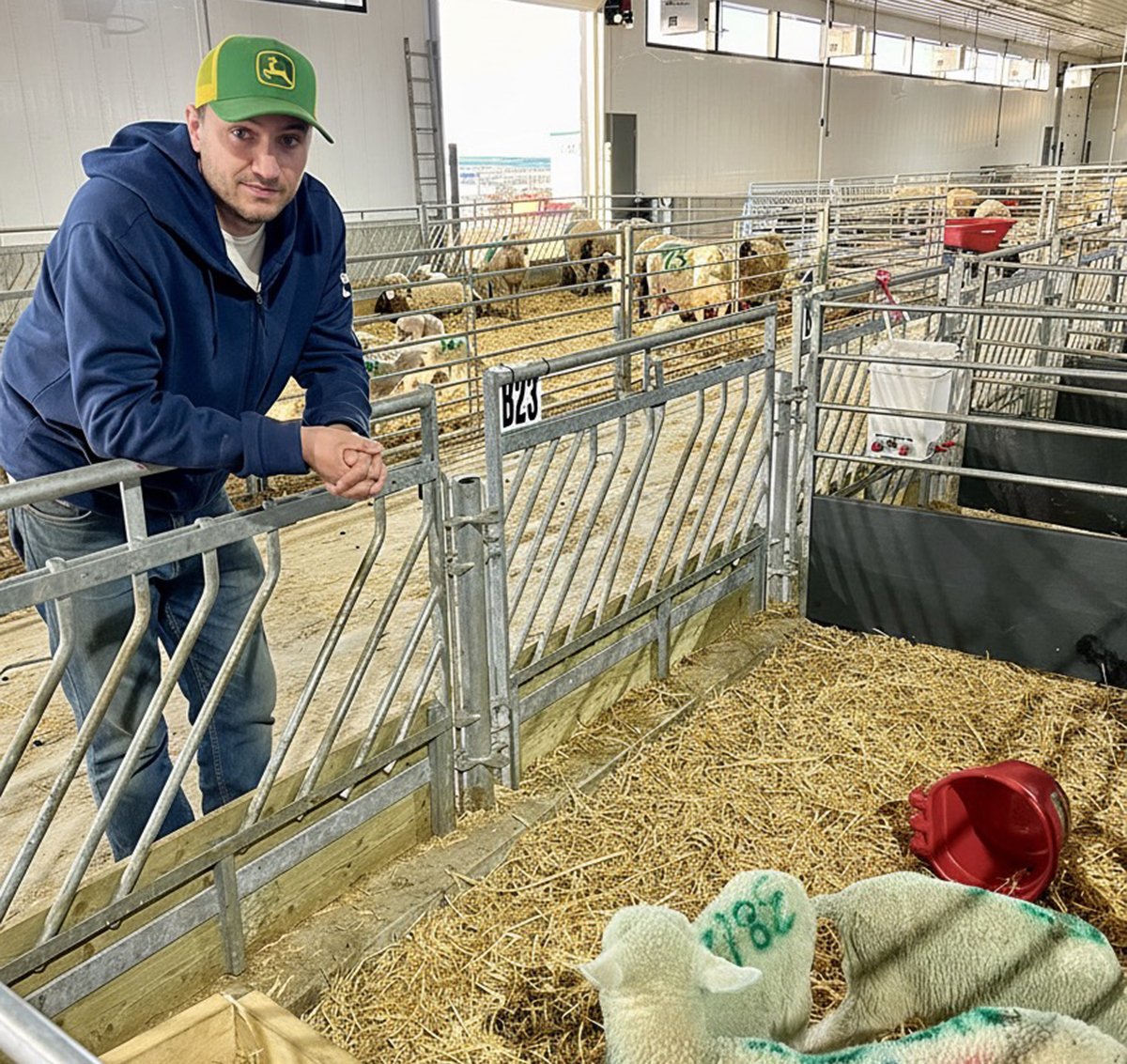More than one million visitors a year may make the Calgary Stampede a perfect way to connect agriculture and urban consumers.
“The urban public does not equate food with agriculture anymore,” said Dave Lantz, a farmer in Alberta and British Columbia and a member of the Stampede’s international agriculture and agri-food committee.
The group originally focused on purebred cattle marketing, but it has rebranded itself as the connection between agriculture, food and beverage processing and the public.
“We want to keep agriculture in the park and make sure our focus is … to make sure we educate our urban cousins as to where their food comes from and that they understand the food is safe,” he said.
Read Also

Solar, sheep provide valuable farm diversification
Eric Steeves says raising sheep on forages grown under solar panels provided economic stability and perhaps even saved his family’s fifth generation southern Alberta grain farm.
“We want to get the word out because there are so many misconceptions with the urban people and they don’t have the opportunity to visit us. Stampede is trying to give them a glimpse of life on the farm.”
The committee is interested in relationship building and has been encouraging the Stampede to welcome new corporate sponsors such as McDonald’s Canada.
“Agriculture can’t be an island by itself,” said rancher Cherie Copithorne-Barnes.
“We have to be building these relationships between agri-food and agriculture and we have to find these areas of commonality where we can get together and showcase each other.”
Copithorne-Barnes, who sits on the international committee and also chairs the Canadian Roundtable on Sustainable Beef, already had a relationship with McDonald’s with its verified sustainable beef program and was able to help make the introductions for the company to become involved with the event.
“McDonald’s came on the park with the sole purpose of sponsoring agriculture,” she said.
The company has been marketing its “Not without Canadian farmers” media campaign, and a presence in the Stampede park’s agriculture area can help it meet its customers.
No Big Macs are for sale on the grounds, but corporate representatives are there to explain how it sources 85 percent of its food from Canadian farmers, said Richard Ellis of McDonald’s Restaurants of Canada. The company came on board in 2015 and makes the Stampede its major event of the year to promote agriculture whether it is beef, eggs, dairy or pork.
“It makes really good sense for us to partner with an organization like this,” he said.
Other processors have also joined the committee for the networking opportunities.
Ravinder Minhas, who heads Minhas Micro Brewery in Calgary, joined the international committee and was keen to explain to consumers and politicians that the 15-year-old company buys thousands of bushels of Alberta barley a year. Every bottle of Minhas craft beer is 100 percent Canadian content.
“Alberta has some of the best brewing barley in the world, and we use the two row malt barley,” he said.
“It is one of the reasons I got on the committee because we became such large buyers of Alberta barley that we wanted people to understand why it is such good barley.”
He and his sister, Manjit, started the brewery while they were studying engineering at the University of Calgary. He earned a degree in petroleum engineering but went on to develop the second largest craft brewery in the province, which offers 60 different labels. They also have a distillery in Wisconsin and make a wide variety of spirits.
Networking through the Stampede enables him to explain that Alberta is more than oil and gas. The biggest manufacturers in Alberta are actually food and beverage companies. Agriculture, with its $10 billion a year worth of exports, is equally important to the economy, he said.
“For me, an event like this is extremely important. Not only do I get to meet those people that we do business with, we get to educate others and educate our politicians,” he said.















